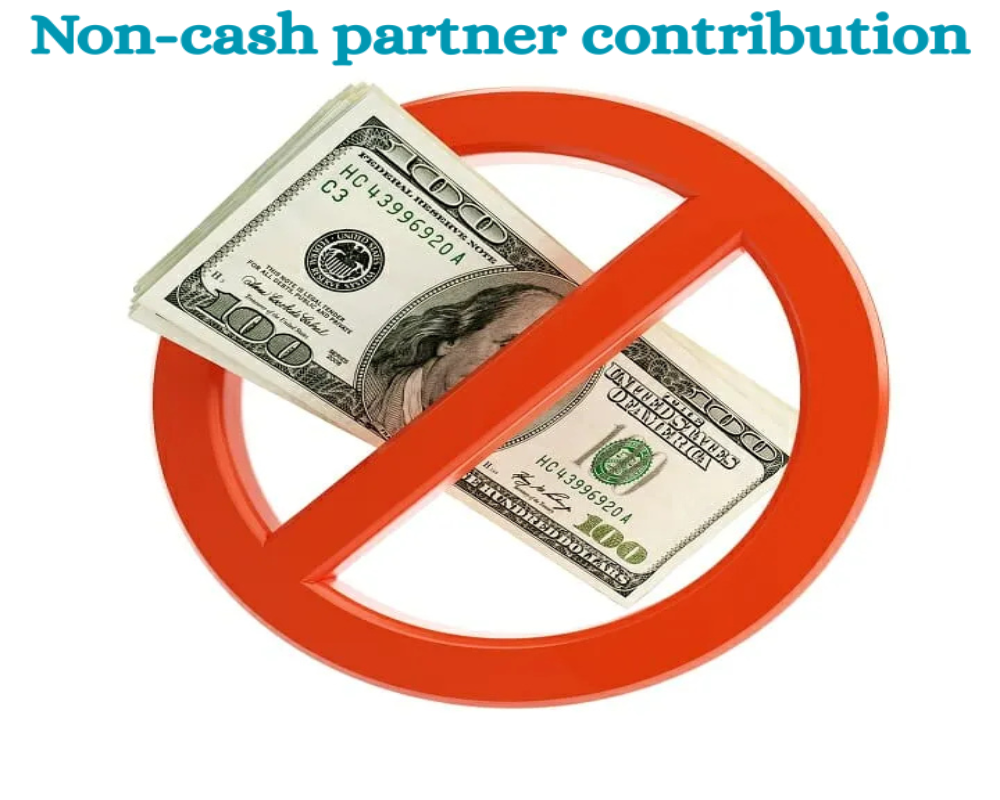Introduction
In a partnership firm, partners bring in capital to start and operate the business. While capital is commonly contributed in cash, it is not the only form of investment. A non-cash partner contribution refers to any asset or value a partner brings into the firm other than money. This can include tangible items like equipment or property, as well as intangible assets such as intellectual property or services. Non-cash contributions hold significant value in defining a partner’s share, role, and rights in the firm. Recognizing and documenting such contributions properly is vital for transparency, taxation, and profit-sharing purposes.
Meaning and Scope of Non-Cash Contribution
A non-cash contribution is the introduction of assets or resources by a partner to the firm that does not involve a direct cash transaction. These contributions become part of the firm’s property, subject to the terms of the partnership deed, and are recorded in the partner’s capital account at an agreed value.
Examples include:
- Tangible assets: Land, building, vehicles, machinery, tools
- Intangible assets: Patents, trademarks, software, goodwill
- Services and expertise: Professional skills, technical know-how, management experience
- Inventory or stock: Raw materials, finished goods, or merchandise
Valuation and Recording
The value of non-cash contributions must be mutually agreed upon by all partners and ideally confirmed by an independent valuation for accuracy and fairness. Once valued, the contribution is:
- Credited to the contributing partner’s capital account
- Reflected in the firm’s books of accounts as part of total capital
- Recognized in the partnership deed, specifying nature and value
This process ensures that all partners are aware of each other’s input and that there is no ambiguity in profit distribution or ownership rights.
Legal and Tax Considerations
Legally, non-cash contributions are treated similarly to cash contributions if documented properly. For tax purposes:
- The partner is not taxed for bringing in a capital asset, but the firm may claim depreciation on it as a business asset.
- GST implications may arise if goods are transferred from a partner’s business.
- Contributions in kind should be supported by invoices or legal transfer documents, especially for immovable property or IP rights.
Conclusion
A non-cash partner contribution allows a partner to add value to a firm using assets, skills, or intellectual property instead of money. It expands the capital base, enhances operational capability, and diversifies resources. For such contributions to be effective and legally sound, they must be clearly valued, documented, and incorporated into the partnership agreement. By doing so, the firm maintains clarity, fairness, and legal compliance while fully leveraging the strengths that each partner brings into the business.
Hashtags
#NonCashContribution #PartnerContribution #ValueInKind #BusinessPartnerships #Collaboration #ResourceSharing #InvestmentInKind #CorporatePartnerships #NonCashAssets #StrategicAlliances #ValueCreation #BusinessGrowth #PartnershipBenefits #CommunitySupport #SocialImpact #InnovationThroughCollaboration #SustainablePartnerships #MutualBenefits #EconomicDevelopment #BusinessStrategy


0 Comments